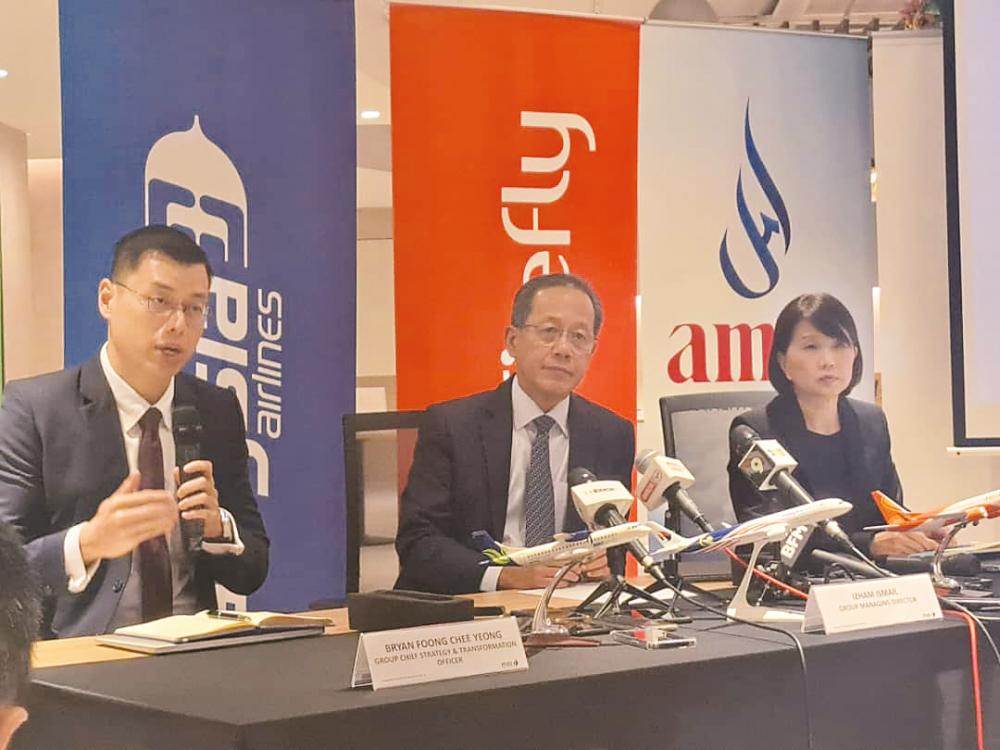PETALING JAYA: Malaysia Aviation Group (MAG) registered a net profit after interest and tax of RM1.15 billion for its fourth quarter ended Dec 31, 2022 compared with a net loss of RM0.67 billion in the corresponding quarter last year, driven by better passenger business.
Revenue in the quarter surged to RM3.8 billion from RM1.58 billion in the same period last year.
For its full financial year (FY22), the group recorded a net loss of RM0.34 billion, down from a net loss of RM1.65 billion in FY21. Revenue rose to RM10.75 billion from RM3.96 billion for the previous corresponding period.
MAG said it was one of its best quarterly performances in the past two decades, attributed to robust demand, higher yield across passenger and cargo segments as well as effective cost management and cashflow optimisation. This was despite higher fuel prices and labour costs, weaker ringgit and lower than pre-pandemic flight capacity levels.
On outlook, group managing director Captain Izham Ismail said that while it is much brighter than pre-pandemic, Malaysia’s aviation sector will continue to face challenges and is not expected to achieve profitability this year due to global economic uncertainties, rising business costs, intensifying competition and over capacity, labour and talent issues as well as increased attention on environmental social and governance.
Despite that, he is confident that MAG will be able to record a profit this year, if fuel costs and foreign exchange rates (forex) remain within the company’s budget.
“Our budget on fuel and forex is very high, that is an advantage to us. If fuel and forex remain at current levels plus or minus, we should be able to (make a profit),” he told reporters during the press conference after its media briefing on MAG’s 2022 annual performance today.
As part of MAG’s network expansion plan, it will launch BKI (Kota Kinabalu) as a new hub for Firefly, increase Malaysia Airlines Bhd’s (MAB) frequency to India and receive four B737-8 MAX aircraft into its fleet this year.
Firefly’s BKI Hub will officially launch its first flight on May 16, serving the Sabah and Sarawak markets. By year-end, the airline plans to fly to Narita (Japan) and Taipei (Taiwan) via BKI.
Izham shared that the growing Indian economy has resulted in rising travel demand from India. MAB is looking at returning to pre-pandemic levels at 60 times weekly flights by the end of 2023.
Effective May 1, he said, MAB Engineering Services (MABES) will be reorganised as a wholly owned entity of the group to explore and capitalise on its strength and future potential in the global aircraft maintenance, repair and overhaul (MRO) market.
MABES will be a platform that can allow the group to compete in the third party MRO market and lead the growth of the MRO business in Malaysia.
On the AirAsia Super App issue, Izham said: “I would like to confirm that we have filed a court injunction, as we were not able to reach a commercial agreement before this and they continue to sell our inventory.”
Earlier this week, Transport Minister Anthony Loke revealed that Malaysia Airlines, which is under MAG, is seeking a court injunction to stop AirAsia’s Super App from offering the former’s flight tickets for sale.
Izham said the Super App, which is recognised as an online travel agency (OTA), has bought seats from aggregators and consolidators.
“In this case they took inventory from Kiwi.com, who aren’t our partners and they take the inventories from their partners,” he remarked.
Izham believes that while all airlines want to work with OTAs, consolidators, aggregators as well as travel agents, a commercial agreement needs to be reached due to key issues that need to be resolved, such as markups and after-sale services.
He disclosed that the case is ongoing and the court proceedings are scheduled to be heard in August, following its filing early last year.
In terms of inventory distribution, Izham said that about 60% is sold via its website, 25% to 30% via travel agents, 12% via OTA and 5% via ticketing offices.









